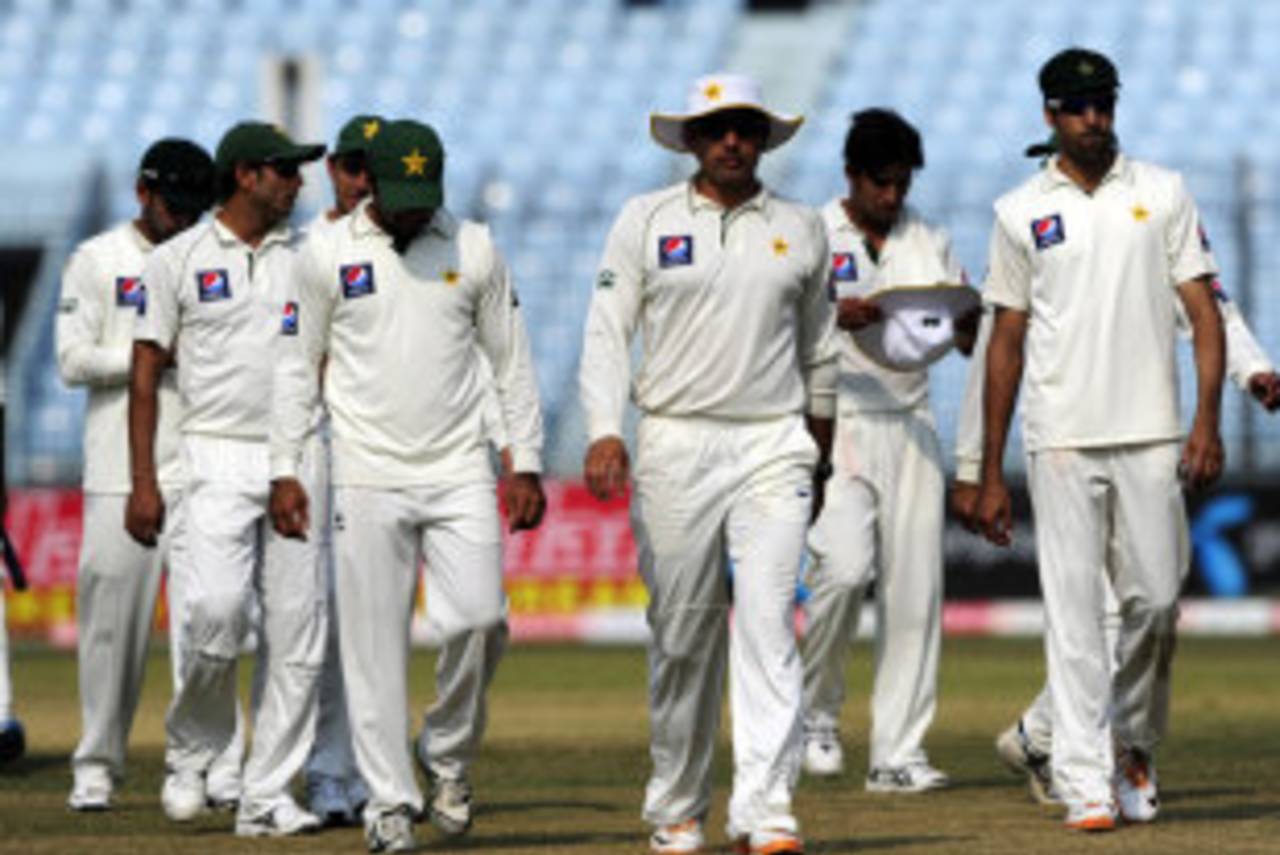Dissatisfied in defeat, no more content in victory, sports fans can be a miserable bunch. Shakib Al Hasan, a Bangladeshi no less, sits atop the world Test rankings for allrounders but fans and pundits call for his country to be demoted from the top tier of international cricket. Undefeated in a Test series in 2011, Pakistan are condemned for a slow, unadventurous version of cricket that renders any success hollow.
Pakistan's predicament is happier than Bangladesh's, discussing the manner of victory always is. But Pakistan were only a heartbeat away from the plight of Bangladesh, Zimbabwe, even West Indies, the strugglers in the swampy lowlands of international cricket. Only a heartbeat away, that is, until an unfamiliar attritional methodology took hold. Pakistan cricket needed a way out of the quagmire, by any means necessary, and the players found it.
The rescue mission to help today's weaker cricket nations swim belongs to the ICC--and it must be a mission of support and inclusion, not hectoring and threats of expulsion. A deeper challenge faces international cricket, a challenge to become a truly global sport with many participating nations, instead of a cartel bossed over by the superficial agendas of the cricket world's most powerful nations.
Power in cricket resides with the cricket boards that control the game's revenues, then by those that control the media, and finally by those that boast the best teams. Possess all three and you rule the world. Under these circumstances Pakistan's only route to influence lies in the ability of its players. If by 2030 Pakistan's population reaches a projected 300 million and they live in peace--a distant dream, perhaps--will the dynamics of power change?
For now, results are the only way to be taken seriously. On that count Misbah-ul-Haq's team have over-delivered. Does it matter how they have done it? To my mind, it matters little. Pakistan cricket was a shipwreck waiting for a Viking burial. There was only one way to go and that was down to the depths of obscurity with the wailing of legends for a death song.
Critics will argue that West Indies, Zimbabwe, and Bangladesh don't pose much threat. Sri Lanka are a spent force without Muttiah Muralitharan. But even such straightforward adversaries have confounded Pakistan's best players for a decade or more. On the other hand, New Zealand are troubling Australia and South Africa are challenging for top spot; Pakistan have matched both in the last 15 months.
But let's not get ahead of ourselves. These are early steps on the road to recovery. Pakistan have played to their strengths (their bowling attack) and within their limitations (the pace of their batting). Simply put, Pakistan have wicket-taking bowlers and defensive batsmen, a formula that has succeeded thus far. Asking this batting line-up to score at four an over would be suicidal. The answer is to integrate more adventurous blades, an opportunity missed with Umar Akmal's exclusion for the Bangladesh series.
Long-term success in any top-level sport begins first with learning how not to lose. Pakistan's great team of the 1980s boasted Mudassar Nazar as its opening batsman, the scorer of the slowest century in Test cricket. The next step is learning how to win from different positions. The final milestone is domination. Team Misbah are finishing stage one, and the England series will be a proper examination of their progress.
This attritional fare might feel alien to us, but it sure beats perpetual humiliation.
Kamran Abbasi is an editor, writer and broadcaster. He tweets here
